Top 11 Herbs and Spices That Lower Blood Pressure

High blood pressure is a chronic medical condition common in the aging population. Otherwise termed as Hypertension, high blood pressure also ranks high on the list of the most common reasons behind cardiovascular disease-related deaths worldwide. It affects nearly a third of the adult population, and its prevalence is expected to continue to increase, according to the American Heart Association.
No one likes to be part of the high blood pressure club, but it sure has enlisted a lot of unhappy members.
What Do You Need to Know About Hypertension?
Now that we know the increasing prevalence of high blood pressure, as well as its contribution to mortality rates, here are more information about this condition:
- There are different types of hypertension
- High blood pressure can usually be controlled
In this article, we will discuss these two topics so we can fully understand what they are and how important it is to be knowledgeable.
What are the different types of Hypertension?

Because hypertension can sometimes be symptomless and may go unnoticed to an unsuspecting eye, hypertension was also dubbed as the “silent killer.” This is why it’s essential to learn more about hypertension types and certain facts surrounding them.
1. Primary Hypertension
According to Stanford Healthcare, Primary Hypertension is a type of high blood pressure that is not related to another medical condition. This simply means that a medical cause for hypertension cannot be found. Primary Hypertension accounts for 90 to 95% of cases reported worldwide.
2. Secondary Hypertension
Secondary Hypertension refers to high blood pressure that is caused by another medical condition, usually occurring in the arteries(blood vessels), heart, kidneys, or endocrine system (glands or hormone-related). Examples of medical conditions that may result in secondary hypertension include:
- Blocked arteries due to high cholesterol levels in the blood
- Heart enlargement
- Sleep problems like sleep apnea
- Blocked renal arteries in the kidneys
- Unusual levels of hormones controlling blood pressure
What are other causes of Hypertension or High blood pressure?
Although the exact cause of high blood pressure is difficult to pinpoint, there are several factors that may play a role, including:
- Eating too much salty foods
- Smoking
- Drinking too much alcohol (more than 2 drinks per day)
- Lack of physical activity
- Being overweight or obese
-
Older age
Stress - Adrenal and thyroid disorders
- Genetics or family history of high blood pressure
- Chronic kidney disease
- Sleep apnea
What does it mean by Persistent Hypertension?

Besides primary and secondary hypertension, you may have heard some people mention something called persistent Hypertension. From the term itself, persistent hypertension (sometimes called resistant hypertension) is a condition when blood pressure remains above the normal blood pressure levels for a long period despite the use of medications or other therapeutic interventions.
What are the Complications Related to Hypertension?
Hypertension increases your risk of acquiring certain medical conditions and several health problems, including (but not limited to):
- stroke
- heart attack
- heart failure
- diabetes
- kidney disease
- metabolic syndrome
- vision loss
What are the Most Common Herbs that can Lower Blood Pressure?

While some cases of hypertension respond well to medications, others require a multi-therapeutic approach which includes non-pharmacologic intervention. With this in mind, you may want to consider natural ways to help reduce your blood pressure.
The following herbs and spices are known to contain active compounds that might help you in managing your hypertension:
1. Garlic
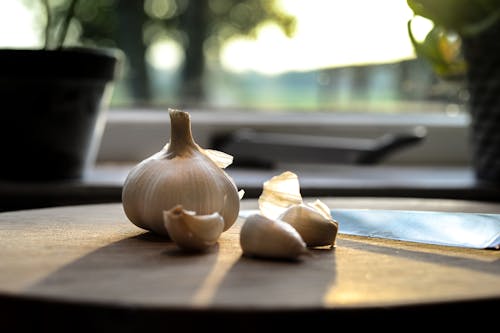
Besides its antifungal and antibiotic properties, various studies show that garlic has the potential of lowering blood pressure. Research suggests that garlic can catalyze the activation of nitric oxide synthase, eventually causing an increase of nitric oxide. Nitric oxide is an enzyme that helps dilate blood vessels and relax smooth muscles. These effects of nitric oxide aid in reducing high blood pressure levels.
In a study observing the effects of garlic extract on blood pressure, it was found that it reduced both systolic (the top number in your blood pressure reading) and diastolic blood (the bottom number) pressure in hypertensive individuals.
What you can do:
Be sure to include garlic in your diet. Apart from lowering your hypertensive episodes, it can enhance the flavor of several savory meals, your breakfast omelets. Instead of salt, add garlic to your meals to further promote the health of the heart. If you are not a real fan of its flavor, you can probably settle on garlic extract supplements.
2. Passion Flower
Passionflower is a stunningly beautiful flower that is cultivated in America for its edible flowers and unmatched beauty. Unknown to many, it isn’t just a flower of beauty, but also a plant with healing (medicinal) properties. The variety of passion flower that has medicinal effects is the species called Passiflora incarnata. Aside from the management of cuts or bruises, they are also used for their impressive healing properties for conditions like sleep disturbances, insomnia, and depression.
A recent study also highlighted the passion flower’s benefits in alleviating stress-induced hypertension. It was found that a cup of passionflower tea taken on a daily basis can help lower and manage high blood pressure levels on individuals with mild hypertension. Since it contains extracts that can reduce anxiety and stress, which are factors that can result in an elevation in blood pressure, it can be effective in reducing high levels of blood pressure.
In another study, benzodiazepines (a tranquilizer medication) and passionflower extracts have been shown to have equivalent sedating effects, making them useful as a natural sleeping solution for those having difficulty falling asleep.
What you can do:
You can consume food and beverages with passionflower extract as it is commonly used as a flavoring ingredient. You can also use dried passion flowers and add it to boiling water to make herbal tea. Dried, pre-packaged passion flower teas are usually available in many health supplement stores. They are also available in capsule form, liquid extracts, and tablets.
3. Lavender
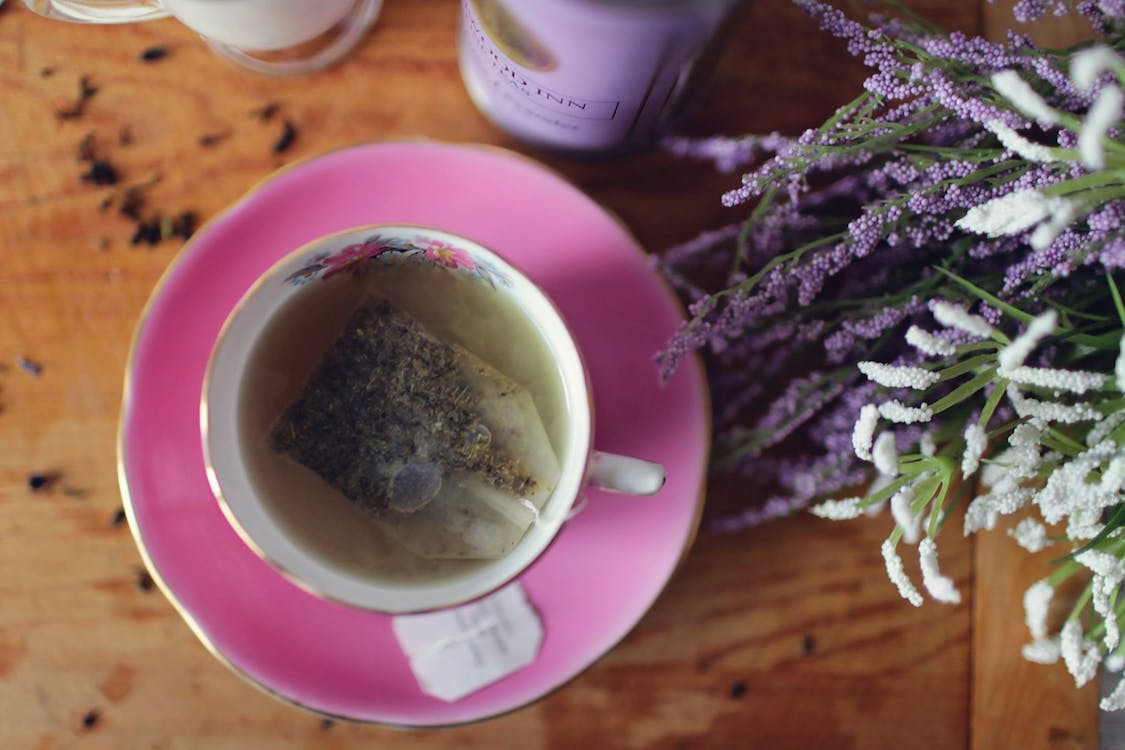
In 2012, researchers from Eulji University, College of Nursing, studied the effects of essential oils in lowering high blood pressure. They mentioned that aromatherapy can be effective in lowering one's BP and heart rate by using essential oils. In this study, they set up a group that was exposed to inhalation of essential oils and a placebo group, which was exposed to artificial fragrance (among prehypertensive and hypertensive patients).
Their experimental intervention involved consultation with an international aromatherapist, upon which they decided to use essential oils that were thought to have a lowering effect on people’s blood pressure. One of the essential oils used in the research is lavender oil.
While there is not one exact mechanism of how it lowers high blood pressure, it is believed that lavender works by relaxing and expanding the blood vessels, thereby lowering hypertensive episodes.
What you can do:
Simply apply it throughout your body while having a relaxing massage. If you cannot find lavender in a form of essential oil, you can use dried lavender flowers instead and add them to your bathwater. If you enjoy drinking tea, just boil lavender flowers and leaves.
4. Holy Basil
We all know that stress and anxiety can both play a devastating role in cardiovascular health. Fortunately, there are several herbs (like passionflower) that can help reduce stress-related damage to our cardiovascular and circulatory system’s health.
Holy basil prevents biochemical changes that are stress-induced, improving endurance, boosting healthy immune functions, and promoting digestive health, especially during times of stress.
Furthermore, it also acts as a blood thinner, which helps prevent stroke and heart attack secondary to blood clots. Not only that, because holy basil can also lower high blood pressure by aiding in the optimization of cholesterol levels in the body.
What you can do:
Supplements with holy basil extracts are available in a pill or capsule form. The recommended dosage ranges vary from as low as 300 mg to 2,000 mg daily, depending on your needs. However, we suggest that you consult with your family physician first, before taking any supplement because some may have antagonizing effects against the medications or supplements you are currently taking.
You can also make herbal tea with holy basil leaves, flowers, or powder. And, if you prefer not to drink tea, you can just use the leaves as flavoring when cooking meals.
5. Basil
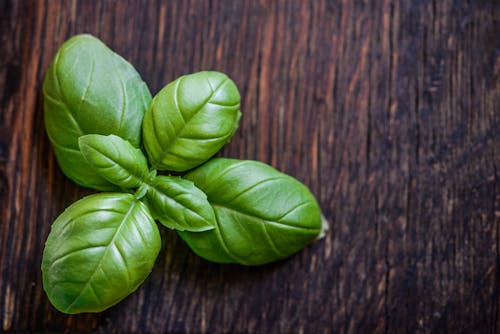
Basil is a famous herb that goes well in a variety of dishes. And besides this culinary benefit, one study attributed the decreases in blood pressure a basil’s extract called eugenol. In rodents, it was shown that it may prevent certain chemicals in the body which tighten our blood vessels. Although only briefly, this may lead to a drop in the levels of blood pressure.
What you can do:
Adding fresh ribbons of chopped basil is easy. You can go the traditional route and infuse your favorite dish oil (e.g. olive oil) with basil or use it to whip up a mean pesto sauce. It can also be used as a condiment for certain meals or as a sauce for pasta or fish recipes. So, keep a small plant pot of the basil herb in your kitchen or buy some from the grocery store.
6. Ginger
Although only observed in animal studies, it has been revealed that ginger can relax the muscles that surround the blood vessels. It has also been found that garlic improves blood circulation, thereby reducing blood pressure.

Human studies, on the other hand, so far have been inconclusive. Further research may be needed to identify its exact effect on humans.
What you can do:
Ginger is commonly used in Asian foods. In fact, it is a versatile ingredient that can be added even to certain beverages or drinks. Whether chopped, diced, minced, crushed, or grates, you may use fresh ginger in your soups and other dishes. You can also add a few slices to your tea for a refreshing, gingery taste.
7. Valerian
Valerian is a beneficial flowering grassland plant popular for its sedative effect. But other than being a tranquilizer, it is useful in managing gastrointestinal spasms or distress, headaches, nervousness, epileptic seizures, trembling, attention deficit hyperactivity disorder, and high blood pressure.
Daily consumption of valerian will help in improving the state of overall relaxation, health, and elimination of stress.
What you can do:
According to the National Institute of Health, common valerian preparations include herbal teas or tinctures, supplements, and dried plant materials or extracts in the form of capsules or tablets. These preparations are made from valerian’s underground stems, roots, and horizontal stems called stolons.
8. Oregano
Scientifically named Origanum vulgare, oregano is a plant that belongs to the same family as mint. Popular for its fragrance and ability to give flavoring to food, oregano was widely cultivated all over the world.
But, its popularity can be traced back to ancient times. In fact, early Greeks and Romans used oregano for medicinal purposes.
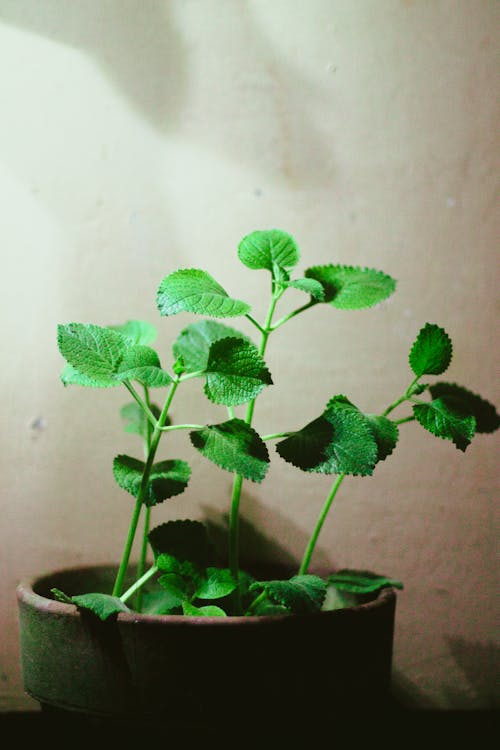
Oregano contains various compounds such as phenols, terpenoids, terpenes, thymol, rosmarinic acid, and carvacrol. Among these compounds, the most abundant phenol that we will focus on in this article is the carvacrol compound.
Carvacrol has been shown to be very effective in reducing blood pressure levels. It also helps lower heart rate and aid in stopping the growth of microbes in the body.
What you can do:
Oregano can be added to meals in the same way herbs and spices are used to add food flavoring. Oregano is sodium-free, which means that it will not contribute to an increase in blood pressure.
9. Cinnamon
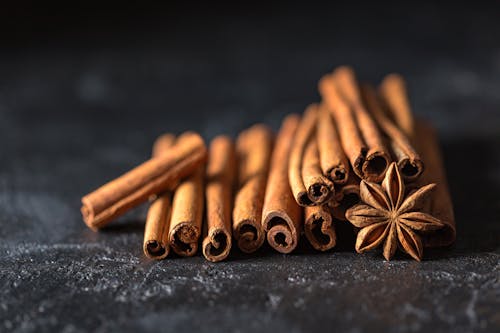
Cinnamon is another tasty spice that can do more than just add flavor to food and infuse the air with a sweet, spicy-hot fragrance. It may also have the ability to bring systolic and diastolic blood pressure down. In one research performed in rodents, the cinnamon extract showed to reduce both sudden-onset and persistent high blood pressure. However, it is still unclear if cinnamon consumed orally by humans is also as effective.
What you can do:
One way to use cinnamon is by adding it to homemade baked bread (like cinnamon rolls) or by sprinkling it on your oatmeal, breakfast cereal, and even in your warm chocolate drink. And if you like stir-fries, pumpkin soup, curries, and stews, you can enhance their flavor with cinnamon powder.
10. Celery Seed
Celery seed is used widely to flavor certain dishes like casseroles, soups, and stews. Tracing back history, it has been used for medical purposes. Indian Aryuvedic medicine used it to treat signs and symptoms of flu, poor digestion, arthritis, liver and spleen diseases, and water retention problems.
Today, it is used mostly to aid the body in eliminating excess water in the body by increasing urine output. This diuretic effect (getting rid of too much water in the body) may help explain its effect on reducing blood pressure. Studies in animals have proved this true, but further research is necessary for celery seeds’ specific effects on humans.
What you can do:
Add celery seeds in your diet. They are available in forms of fresh or dried seeds, as well as extracts. You can also juice the whole plant by putting it on a blender. Tablets and capsules are also available, which are filled with celery seed oil. They can be taken as daily supplements.
DO NOT take celery seeds from a gardening packet. These seeds have usually been treated with chemicals.
11. Cardamom

Cardamom is a seasoning that belongs to the ginger family. It is native to the Indonesian and Indian subcontinent and is often used in South Asian cuisine. Researchers have investigated in a study of twenty participants the effects of cardamom in blood pressure. They have found that after taking cardamom powder of 1.5 grams each, two times a day for twelve weeks, the participants’ blood pressure dropped significantly.
What you can do:
You can use cardamom powder or seeds in your spice rubs, stews, soups, baked goods, and other dishes. It will give your meals a special flavor, and of course, a possible positive health benefit—like let’s say lowering your blood pressure.
Precautions (Must Read!):
The use of any of these herbs has been a widely-known approach to ward off diseases, strengthen the body, and promote health and wellness. However, certain herbs, like medications, can have unwanted effects and may not interact well with other herbs, dietary supplements, vitamins, or medications. For these specific reasons, any herbs from the list above should be taken under the supervision of a professional health care provider.
Other important information that should also be taken into consideration include the following:
- Child-bearing women (especially in the first trimester) should avoid consuming celery seeds because it may cause uterine bleeding or uterine muscle contractions, which could result in miscarriage.
- People with hypotension (low blood pressure) should use caution when considering taking any of the herbs listed above.
- People with other medical conditions should take caution when taking herbs.
- Some people may have allergies to these plants.
- More studies are needed to find out the specific ways of how these herbs work in human bodies.
These are just some of the reasons why you should always talk to your primary care provider or family doctor before trying herbs as an alternative treatment for your high blood pressure. They will help you assess and weigh the potential benefits of these herbs against their risks.
Remember:
What you eat, drink, or use as a supplement matter. They all play a very important role in managing high blood pressure. And being healthy doesn’t have to be daunting. Considering some natural solutions is a good start to controlling and managing your high blood pressure. They work best in combination with other interventions.
In the next articles, we will look into other natural ways to manage high blood pressure. We will discuss other interventions such as the power of adequate sleep, regular exercise, and how they can promote health and wellness.
